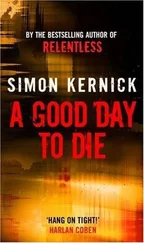“I’d call it statistically impossible,” the sheriff says, unequivocally.
“Mind if I ask you something?” Thomas looks directly at the sheriff.
“Shoot.” Jimbo smiles.
“How’d you get your purple heart?” Thomas asks.
“Toenail fungus in Da Nang,” Sheriff Murphy replies. “My whole outfit had it. Gave us all purple hearts and sent us home.”
“You didn’t shoot your foot?” Thomas is surprised.
“No,” Jimbo admits. “But the truth was embarrassing. I made up a cover story.”
That’s how we live, Thomas realizes. We step on IEDs and our skin peels off. We stumble on, certain an intervention is coming, a reprieve. We invent small fictions like patches sewn over torn cloth. The headlines of our lives are mere approximations of a complexity we could not characterize in the chaos of constantly flowing emotions and circumstances. We are all stars with our events compressed and encrypted. We are what loiters in erratic orbits in the vast ocean of night.
“What was Captain thinking at the end?” Thomas asks.
“He got a kick telling me about who he played with. What their houses were like. Press a button and the living room turns into a tennis court. He’d play with Mark Zuckerman and Bill Gates and the smart boys from Google and such. Lots of hedge fund guys and dudes named Phil,” Jimbo says. “The Captain didn’t give a rat’s ass about gadgets and the future. He was moving to Cannes. Last thing we discussed.”
“Cannes?” Thomas repeats.
It’s the end of an Indian summer afternoon. They walk outside and sit on the backyard grass. The forest is an extravagance of maples in transition. Leaves are yellow as candles purified by prayer, and an unrepentant criminal red like vengeance and adultery. There’s a linear continuity to this, a cause and effect he can almost articulate and arrange like an equation.
Thomas notices a swingset, monkey bars and a sand box with red and blue plastic buckets and small shovels. Vestiges from Jimbo’s last marriage. Was that the third or fourth?
“See them much?” Thomas indicates the swings.
“She up and moved to Oregon. Two hundred miles from an airport,” Jimbo says. “Claims she doesn’t have a phone.”
“Maybe you can get the Hughes constable to ride over,” Thomas offers.
Jimbo laughs. “People tell you everything. They’re social by nature,” the sheriff reveals. “They confess. They put their sins and ambitions on bumper stickers. They show you where the bodies are. But they tilt their words and disguise them. It’s in plain sight if you know how to listen.”
“Do you know how to listen?” Thomas thinks to ask.
“I got a good ear,” Jimbo says. “Good eyes, too.”
“Think she’ll come back?” Thomas asks.
Jimbo looks at his polished back shoes. Then he shakes his head no.
“You believe in destiny?” Thomas suddenly wonders.
“Didn’t use to. But I’m coming around,” the sheriff says. “Here’s an anecdote. Few autumns back, a little girl fell in the Genesee near Hamilton Bridge. Pretty girl, four years old with pink bows shaped like cats in her hair. Name of Amanda Leaf. A pick-up crosses the bridge. Lady happens to look out the window. Lucinda Hopper, forty-six, a homemaker with three sons, spots the girl in the current. George Hopper, fifty-one, hits the brakes. They’re trying to get to Butler but they took a wrong turn. They both jump in the river. Everyone drowns. I recovered the bodies. Point is, they didn’t belong on the bridge to begin with.”
After a while, Thomas says, “Thanks for all this.” He points at the room where the mourners have been and gone. He opens his arms wide, trying to encompass the day the Captain and his mother walked into town, how she painted walls and built the clinic roof, and carried him in an Easter basket. He pauses at the door.
“Hey, Jimbo. Captain did have a friend,” Thomas realizes. “You were his only friend.”
“I appreciate that,” Jimbo says.
Thomas thinks there should be more. He fights an impulse to fall to his knees and beg the sheriff to adopt him. He can rent a room in Jimbo’s house. Or maybe he needs to find a sharp rock or bat. The sheriff’s hunting rifle, an old Remington 30-30, leans against the kitchen wall. Jimbo’s probably wearing his pistol. He’s stronger but Thomas has the element of surprise. Thomas wants to embrace the sheriff but doesn’t. He suddenly wants to put a bullet in Jimbo’s gut and watch him bleed out. They shake hands.
“I’ll call you,” Thomas says.
“You do that now,” Jimbo replies.
It’s not all gone if someone with a good ear is left, Thomas decides. The forests of his boyhood, rinsed with henna and dyes from antiquity, the houses on Maple Ridge Road and Lincoln Street, and the people who inhabited them linger, anchored in a part of the memory no one has deciphered. They’re embroidered into our biochemistry and their words come out of our mouth.
In his room on Lincoln Street, blue guppies with yellow fins and cherry barbs with intricate braded sides float to the surface. His butterfly ram was supposed to live four years but didn’t. Tommy pulls them out with his fingers. His sunken ship gives up on distress calls.
Captain holds his car keys between his long, sturdy middle fingers. The key ring is attached to his Gold Crescent bronze prize. It’s the size of a silver dollar but seems like an artifact from an ancient civilization. He invented the universe, currency and barter. He may devise navigation and counting next. Then geometry, philosophy, and the schematics of how to beat the house.
“I’ve got bluetongue and red tongue and tongues with rows of high-heeled Cancan dancers,” the Captain said, whistling “Tambourine Man.” “I’ve got Nile Fever, Grass Fever and some vile viral nightmare from Cambodia. I got widows and orphans from here to Honolulu. Ho Ho Ho.”
Captain revealed himself, but Thomas couldn’t interpret his code. His father’s choreographed entrances and exits were confessions repeatedly reenacted. He committed seppuku every time he walked out to the Buick. How had he failed to notice?
His red-haired, pre-med, twin half-sisters shake pompoms as they pass. Amanda Leaf climbs out of the Genesee. Her voice is a sequence of miniature azure bells. Her hair is still wet and clouds of sapphire moths circle her face.
The dead and the missing exert a field that doesn’t dissipate. Gestures and phrases have half-lives. Silences are deserted plazas, dusty, throttled by wind where the last goat starves. Omissions are a dereliction.
His mother stands on a sandbank. Kelp stretches out like a henna crocodile. She reaches inside the seaweed and pulls out amber dragon fangs. For you, Tommy. Now I can come home.
The most spectacular and irredeemable crimes have no official designation, no official code number or prison sentence. They’re boulders in the Genesee where little girls drown. They’ll be here when you and your loves and the concept of love itself is gone and there’s no statute of limitation.
Hailed as one of America’s foremost writers of short fiction, KATE BRAVERMANhas been included in nearly every preeminent story collection, including Ben Marcus’ New American Short Stories , Tobias Wolff’s The Vintage Book of Contemporary American Short Stories, McSweeney’s, Best American, Carver, The Paris Review, and The Norton Anthology of Short Fiction . She is the author of many books including the groundbreaking novel Lithium for Medea , which caught the attention of Joan Didion, Janet Fitch, Rick Moody, Greil Marcus, and others, identifying Braverman as a remarkable literary voice in American letters.
Читать дальше






![Джон Харгрейв - Mind Hacking [How to Change Your Mind for Good in 21 Days]](/books/404192/dzhon-hargrejv-mind-hacking-how-to-change-your-min-thumb.webp)





